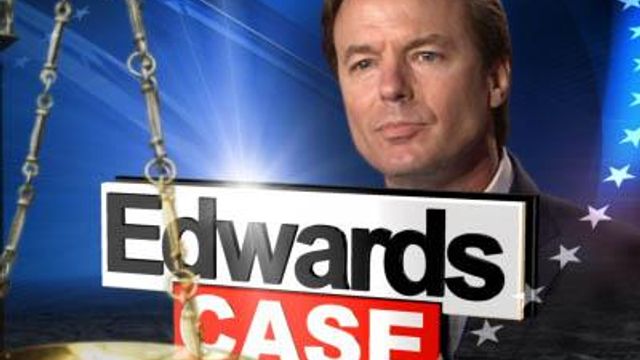Murky campaign laws made Edwards case difficult
Forty-five pages of confusing jury instructions that attempted to translate election law into lay language played a role in a jury acquitting John Edwards of one charge and deadlocking on five others, according to a legal expert.
Posted — Updated"Campaign finance laws by their nature are murky. They're written to be murky, and they are very fungible, and you're supposed to sponge them to get out of them as much as you can," Joyner said Thursday. "But when you start talking about the criminal law, you're looking for something that's clear, concise, to the point."
U.S. District Judge Catherine Eagles dismissed the five remaining charges on Wednesday after prosecutors said they don't plan to retry Edwards.
"It's difficult to frame in a clear manner laws that are ambiguous," Joyner said. "Then, you take laws that are ambiguous, and you attempt to expand the scope of those, and to explain that to lay people is always a very difficult thing to do."
A federal grand jury indicted Edwards a little over a year ago on charges that he used nearly $1 million provided by two wealthy donors – Virginia heiress Rachel "Bunny" Mellon and Texas trial lawyer Fred Baron – to keep his mistress, Rielle Hunter, quiet and away from the media in the run-up to the 2008 presidential primaries.
In five days of testimony during the month-long trial, former Edwards aide Andrew Young detailed schemes in which Mellon funneled money through a Charlotte interior decorator to him and his wife to pay for Hunter's expenses and in which Baron paid for charter planes and resort accommodations as Hunter and the Young family hopscotched across the country to evade tabloid newspaper reporters.
Young admitted under cross-examination, however, that he and his wife spent much of the money from Mellon and Baron on a house they were building near Chapel Hill and other personal expenses.
Edwards' lawyers argued that the money was gifts to help Edwards hide his affair with Hunter from his cancer-stricken wife and that the issue should have been addressed, if at all, by the Federal Elections Commission and not through a criminal investigation.
"I think the biggest problem was trying to transform a civil election law issue into a criminal law matter," Joyner said. "The evidence didn't support the criminal law aspect that they were trying to promote."
In hindsight, he said, the case never should have been brought in the first place, and it makes sense that the government has ended any attempt to retry it.
"It was a waste, and what we can learn is that we need to more carefully scrutinize actions to prosecute people criminally for things that are murky," he said. "If it's a dead body there, then that's a different situation than trying to make the prosecution fit the political ambition, and in this case, I think the government was guilty of getting caught up in the political motivation."
• Credits
Copyright 2024 by Capitol Broadcasting Company. All rights reserved. This material may not be published, broadcast, rewritten or redistributed.






